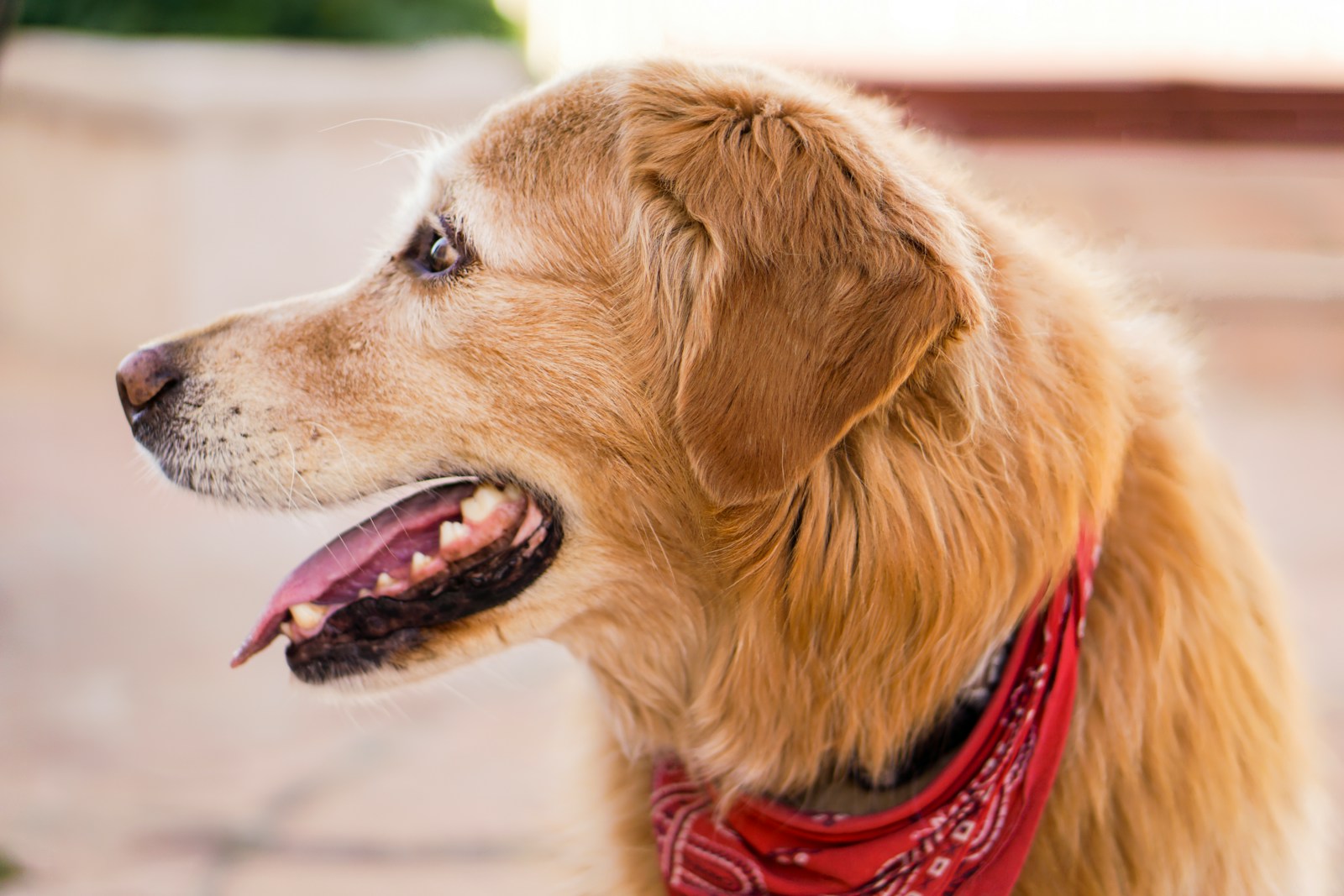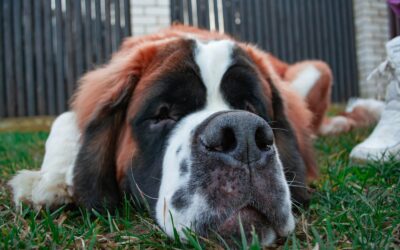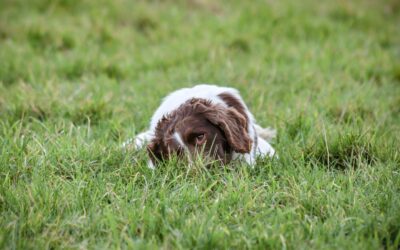How many teeth does a dog have?
A dog’s smile is more than just adorable; it’s an important reflection of their health. Yet, many dog owners don’t consider their pet’s dental health as a priority until there’s a noticeable issue. Did you know that understanding how many teeth dogs have, the types of teeth they develop, and how to care for them can prevent common issues like dental disease, dog tooth decay, and even tooth loss?
From those tiny puppy teeth to the strong adult teeth, your dog’s teeth serve multiple functions. Read on to uncover key insights into your dog’s dental development, common problems to watch for, and essential tips for maintaining your dog’s oral health.
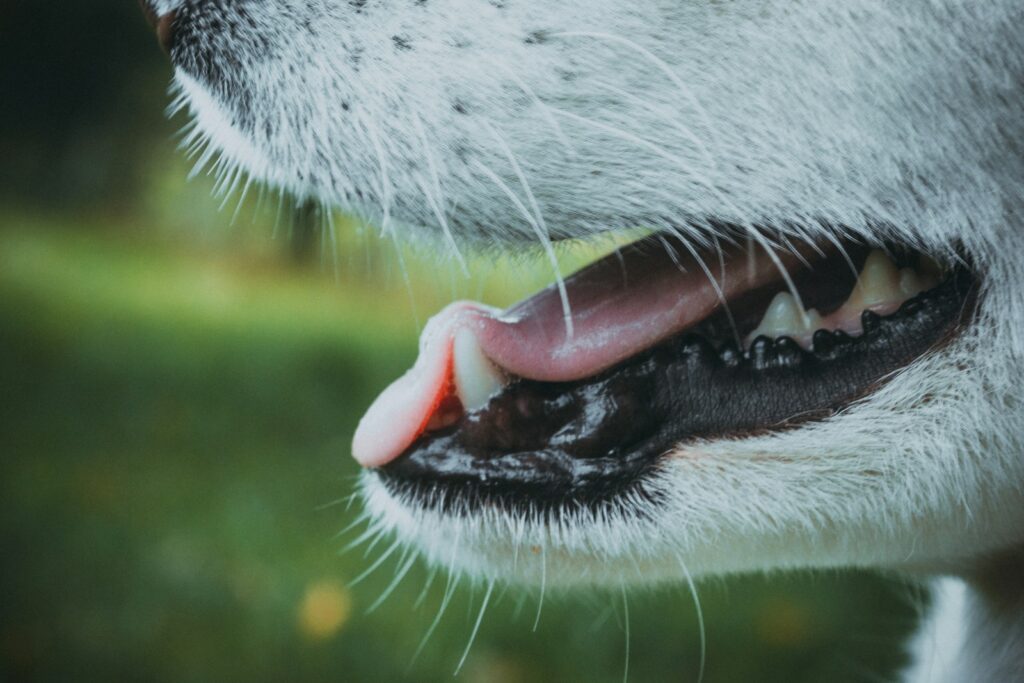
Benefits of Your Dog Having Healthy Teeth
Ensuring your dog has healthy teeth is more than just about maintaining a bright smile—it plays a vital role in their overall well-being. Here are all the benefits of keeping your dog’s teeth in great shape:
1. Prevents Pain and Discomfort
Dental issues, such as gum disease or tooth decay, can cause significant pain and discomfort for your dog. Healthy teeth and gums help your pup enjoy their daily activities, from eating their favorite food to playing and chewing on toys, without any distress.
2. Encourages Good Nutrition
Healthy teeth make it easier for your dog to chew and break down their food properly. This aids digestion and ensures they’re getting all the nutrients they need for a strong immune system, shiny coat, and boundless energy.
3. Reduces the Risk of Dental Disease
Regular care and maintenance of your dog’s teeth help prevent common dental diseases like periodontal disease, which can lead to tooth loss, bad breath, and even more serious issues such as infections that spread to other parts of the body.
4. Improves Overall Health
There is a strong connection between oral health and overall health in dogs. Bacteria from untreated dental issues can enter the bloodstream and affect vital organs such as the heart, liver, and kidneys. Healthy teeth can help protect your dog from these complications.
5. Keeps Their Breath Fresh
One of the more noticeable perks of dental health is that it greatly reduces bad breath. A clean, healthy mouth means you can enjoy cuddle time with your pup without unpleasant odors.
6. Enhances Longevity
Dogs with healthy teeth and gums often live longer, happier lives. By prioritizing their oral hygiene, you’re actively contributing to their long-term health and giving them more time to spend by your side.
7. Boosts Their Mood and Behavior
Dental pain and discomfort can make your dog irritable and less playful. When their teeth and gums are healthy, they’re more likely to be cheerful, active, and ready for all the fun activities you love doing together.
Promoting dental health is essential for your dog’s quality of life. By investing time in cleaning their teeth, offering dental-friendly toys and chews, and scheduling regular vet checkups, you’ll set them up for a healthy, happy future.
How Many Teeth Do Dogs Have?
Puppy Teeth
Just like humans, dogs are born without teeth. However, by the time a puppy is about 3 to 6 weeks old, they develop their first set of baby teeth, also known as deciduous teeth or milk teeth.
How many teeth do puppies have? Puppies typically have 28 small, extremely sharp teeth in their mouths. These include incisors, canines, and premolars. If you’ve been on the receiving end of a puppy’s playful nibbling, you know just how sharp those tiny teeth can feel!
At around 12 to 16 weeks of age, puppies begin to lose these teeth as the adult teeth grow in. You might notice loose or wiggly teeth during this stage, which is completely normal. Puppies often swallow these teeth while chewing or eating, so don’t worry if you don’t find them.
Adult Dogs Teeth
When a dog matures, their baby teeth are replaced by a full set of 42 adult teeth. These include:
- 12 incisors (6 on the upper and lower jaws each)
- 4 canines (2 on the top, 2 on the bottom)
- 16 premolars (8 on the top, 8 on the bottom)
- 10 molars (4 in the upper jaw, 6 in the lower jaw)
Types of Dog Teeth and Their Purpose
Dogs’ teeth are designed for different functions, reflecting their role as omnivores with carnivorous tendencies:
- Incisors: Small teeth at the front of a dog’s mouth, used for nibbling, grooming, and removing objects like dirt or hair.
- Canines: These long, pointed “fangs” are the iconic teeth dogs use for grabbing, tearing, and holding onto food or objects.
- Premolars: Found between the canines and molars, these teeth help shear and chew food into smaller pieces.
- Molars: Flat at the surface, molars are used to grind food, especially hard objects like kibble or bones.
How Do Dogs Lose Teeth?
It’s important to differentiate between natural tooth loss in puppies and dental issues in adult dogs. While puppies lose their milk teeth as part of their development, adult dogs shouldn’t lose teeth unless there’s an underlying problem, such as injury or dental disease.
Dogs may lose teeth due to:
- Periodontal disease: An advanced stage of gum disease, often caused by poor oral hygiene.
- Tooth decay: Similar to human teeth, a dog’s teeth can develop cavities if tartar and plaque are left untreated.
- Trauma: Chewing hard items like bones (especially pork or beef bones) can lead to tooth damage or fractures.
- Retained baby teeth (deciduous teeth): When milk teeth don’t fall out as they should, they can cause overcrowding or improper alignment, particularly in small breed dogs.
If you notice loose teeth, trouble chewing, or signs of discomfort like pawing at the mouth, consult your vet immediately to prevent further complications.
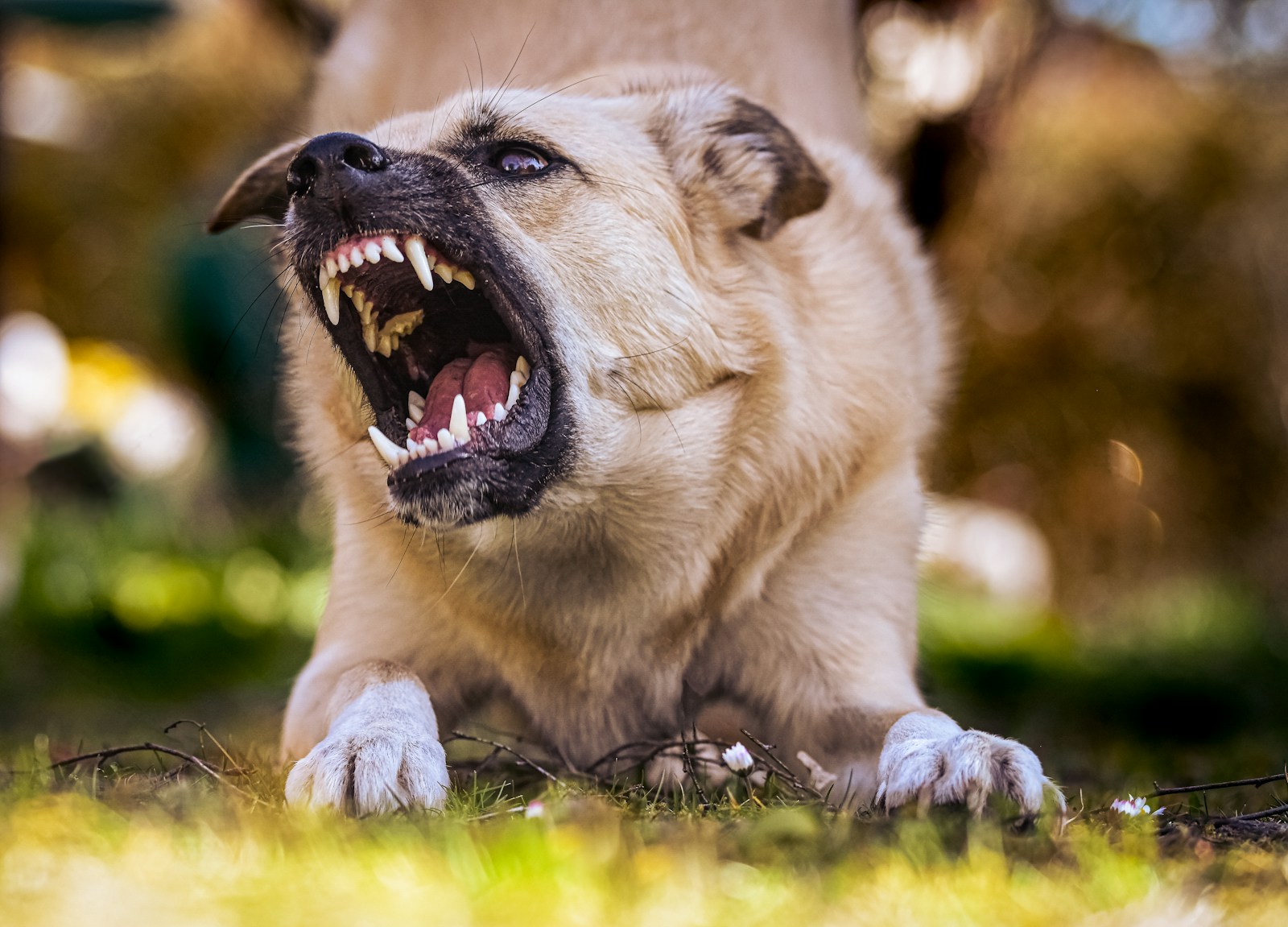
Photo by Alexas_Fotos on Unsplash
Common Dental Problems in Dogs
Maintaining your dog’s oral health goes beyond ensuring they have a pearly white smile. Here are some common dental issues that dog owners should watch for:
Decaying Teeth
Tooth decay can occur when food particles and bacteria accumulate on a dog’s teeth, leading to the breakdown of enamel and the formation of cavities. If left untreated, decaying teeth can cause significant pain and tooth loss.
Periodontal Disease
A leading cause of dental problems in dogs, periodontal disease starts as gingivitis (gum inflammation) and progresses to affect the teeth and jawbone. Signs of advanced periodontal disease include:
- Bleeding gums
- Bad breath (halitosis)
- Swollen or infected gums
- Loose or diseased teeth
Addressing the disease early with regular dental cleanings can save your dog from the pain of tooth loss or jaw issues.
Retained Baby Teeth
Particularly in small breeds, retained deciduous teeth are a common issue. These retained teeth can push adult teeth out of alignment, making it harder for dogs to chew and potentially increasing the risk of dental disease.
Fractured Canine Teeth
Hard objects like beef or pork bones, antlers, or even tough toys can lead to tooth damage. Chipped or broken teeth expose the sensitive pulp inside, causing pain and a risk of infection.
Tips for Maintaining Your Dog’s Dental Health
Taking care of your dog’s teeth doesn’t have to feel overwhelming. Here are some practical steps you can take to keep their smile healthy and bright:
Brush Their Teeth Regularly
Daily brushing is ideal, but even brushing a few times a week can make a difference. Use a dog-specific toothbrush and toothpaste (never human toothpaste, as it contains harmful ingredients like xylitol).
Provide Dental Chews and Toys
Dental chews are a great option for reducing plaque and tartar buildup while satisfying your dog’s natural chewing instinct. Opt for toys made from safe, durable materials that won’t splinter or break during use.
Schedule Regular Vet Visits
During your pet’s annual exam, your vet will check for signs of gum disease, loose teeth, or other oral health issues. They may recommend a professional dental cleaning if there’s significant tartar buildup.
Watch for Signs of Trouble
Keep an eye on your dog’s behavior and oral health. If you notice bad breath, difficulty chewing, drooling, or any loose teeth, contact your vet promptly.
Stop by Snouts and Stouts Indoor Dog Park and Bar for a day full of relaxing fun!
Top 6 Dog Dental Products and Brands
Keeping your dog’s teeth healthy can be easy with the right products. Here are six top-rated dental products and brands that can help maintain your dog’s oral health. Each of these products is designed to fight plaque, freshen breath, and improve overall dental hygiene:
Virbac C.E.T. Enzymatic Dog Toothpaste
A trusted option among pet owners, this enzymatic toothpaste is specifically formulated for dogs. It helps reduce tartar, fight plaque, and freshen breath while being safe to swallow.
Buy Virbac C.E.T. Toothpaste here
GREENIES Dental Treats
These tasty dental treats are a favorite among dogs and are designed to clean teeth and freshen breath as they chew. Available in various sizes to suit all breeds.
Shop GREENIES Dental Treats here
Arm & Hammer Dog Dental Spray
This easy-to-use dental spray helps control tartar and freshen your dog’s breath. Made with baking soda, it’s a great choice for dogs that resist toothbrushing.
Get Arm & Hammer Dental Spray here
Petrodex Dog Toothbrush and Toothpaste Kit
This complete kit includes a dual-ended toothbrush and enzymatic toothpaste to make brushing your dog’s teeth simple and effective.
Purchase the Petrodex Kit here
Nylabone Dental Chew Toys
Designed for canine dental health, these chew toys help reduce plaque and tartar buildup while satisfying your dog’s natural urge to chew.
Find Nylabone Dental Chew Toys here
TropiClean Fresh Breath Oral Care Water Additive
Simply add this water additive to your dog’s drinking bowl to promote healthier teeth and gums. It’s an easy solution for fresher breath and improved dental hygiene.
Shop TropiClean Fresh Breath here
Using any of these trusted products can help establish a good dental routine and maintain your dog’s oral health for years to come. Always consult your veterinarian for personalized recommendations.
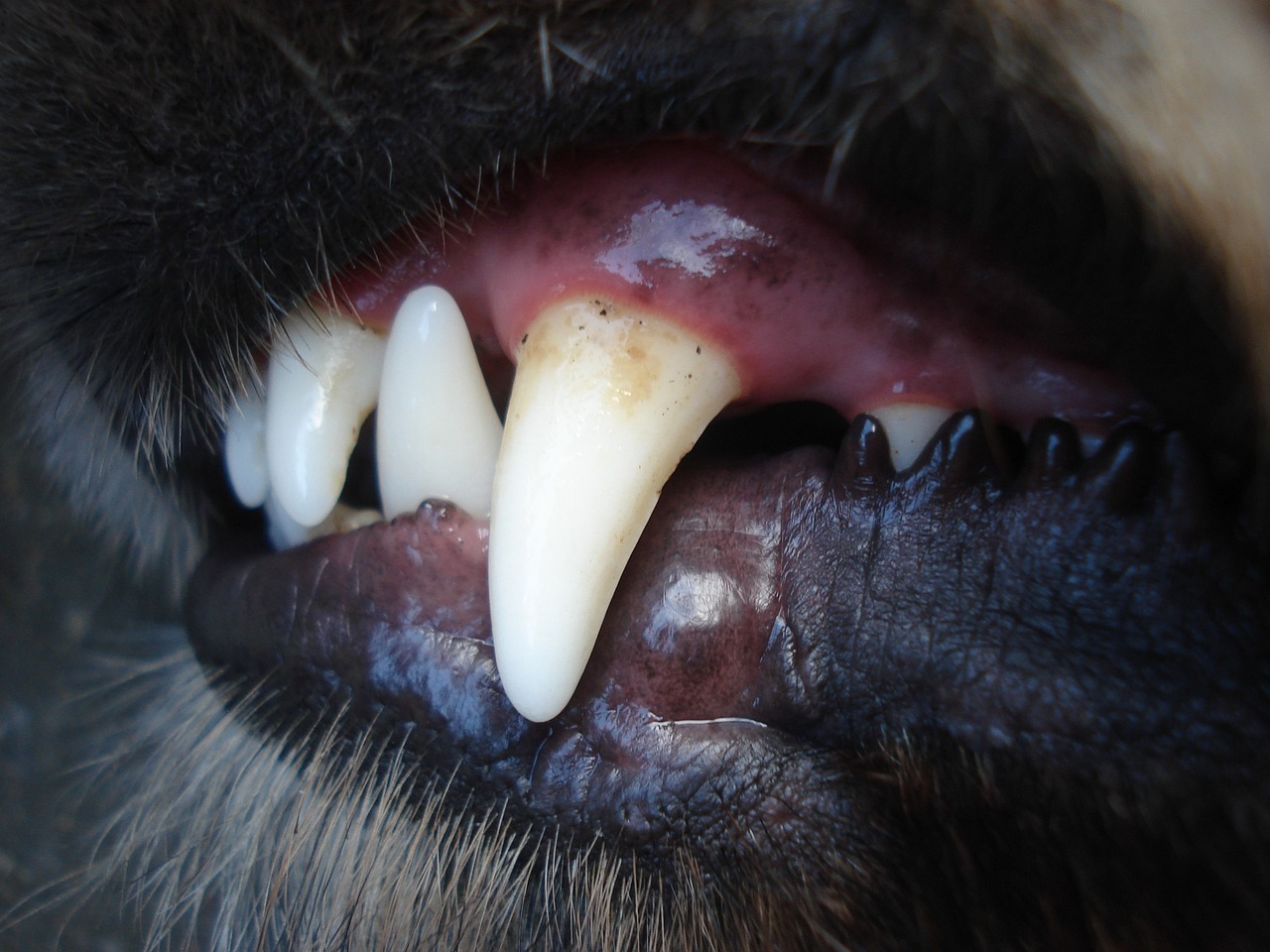
Why Dental Health Matters for Your Dog
A dog’s oral health is directly linked to their overall well-being. Poor dental hygiene can lead to advanced dental disease, affecting not just the mouth, but also other parts of the body—including the heart, liver, and kidneys. Taking proactive steps to care for your dog’s teeth ensures they’ll stay happy, healthy, and pain-free for years to come.
Give Your Dog a Reason to Smile | How Many Teeth Does A Dog Have?
Understanding your dog’s dental health—from their first sharp puppy teeth to their strong adult teeth—is key to keeping that wagging tail and slobbery smile intact. By following proper dental hygiene practices, you can protect your furry friend from tooth decay, periodontal disease, and unnecessary discomfort.
Need more tips? Schedule a visit with your veterinarian or try incorporating dental-friendly toys and chews into your dog’s routine. Your dog will thank you with every cheerful wag.


